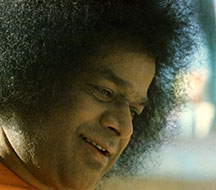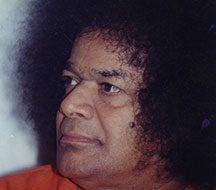
Bad company leads to bad results: Analogy of a mosquito
Bangalore, SSSIHL-BRN (Summer Course )
Description
These days, it is not uncommon to see evil doers [seemingly] get away with it while good people suffer. It appears as if someone commits the crime and someone else gets punished – this is how things are in the world. Here is an example. You are sleeping in your room at night but mosquitoes disturb you. So, next day, you use a mosquito net but it still does not help because a few mosquitoes have sneaked into the net. You now resort to a drastic remedy – you spray Flit all over. You cannot identify the specific mosquitoes that bit you but you are not bothered; you spray over all the mosquitoes you can see. Only one or two mosquitoes bit you but now hundreds are dying. Why is this so? Because of friendship. Even if you are innocent, you have to suffer if you keep the company of evil doers. It is to drive this home that Swami often says: “Tell Me your company and I shall tell who you are.” Once bad thoughts get in, they multiply rapidly and soon drive out kshama; and kshama once lost is not easily regained. You must therefore protect this virtue at all costs and see that you never lose it, especially because with kshama you can achieve anything.
Topics
-Company
-

Good qualities depends on the company we keep
00:01:22“Budhdhihi karmanusaarini!!” One’s intellect develops based on one’s good and bad actions. Bad actions lead to bad mind and good actions lead to good mind. Therefore, one’s actions are solely responsible for one’s state of mind. Hence to indulge in good actions one has to keep good company. As is the company so is the mind. ‘Tell me your company I shall tell you what you are!!’ It can be proved that as is the company so is the person. Therefore, one must develop good qualities by keeping good company.
-

Youth should involve themselves in Satsang
00:01:32The well being of this world depends on the men and women. Hence, young men and women should have a sacred heart, pure mind and should indulge in selfless service and bring happiness to the country. Youth must join good company. ‘Satsang’, good company, does not mean association with good people. ‘Sat’ means divinity. That is ‘GOD’. That is permanent. With that divinity one should develop association. That will help in getting rid of all the bitterness and in growth of sweetness. It is this divine association that will cleanse the sins and free one from all the curses. The world has lost such sacred divine association today and has totally lost the human quality.
-

Why should we do namaskar to good and bad people; Kabir says
00:03:18Kabir looked at good company as well as bad company and said that both of them should be respected. At this, the disciples questioned him how it is that both good company and bad company deserve to be respected. To this, Kabir replied that there is some trouble to the world from the bad people and there is trouble to the world also from the good people. In order that there is no trouble from either quarter, he is paying respects to both of them. The disciples then asked how any harm can result from good people. Kabir smiled and said that association with bad people causes great discomfort. On the contrary, separation from good people also causes great discomfort, and therefore, he was praying to both. There should not be separation from good people and there should not be association with bad people. You must always be praying that both these things may come your way. This is my blessing to you. I hope you will be able to get good company always.
-

What is Satsang and good company according to Adi Shankara and Vemana
00:03:32Shankara was in the position of a teacher for the entire world and he propagated many ideals amongst the people. Amongst them, the concept of non-dualism or the philosophy of Adwaitha, is an important one. Along with his disciples, he taught these things, travelled all over the country, stressed the importance of the aspect of Atma and explained to people the nature of Paramatma or God. He stressed the importance of having Satsang or spending your time in good company. He taught that for one’s liberation, Satsang or good company is an important step and even the first step. When we make an enquiry as to what the word Satsang means, we will come to interpret it by saying
-

You see your own reflection in others
00:04:00Premaswarupas! You must establish in your heart the idea of brotherhood of man and fatherhood of God. In this context, we must promote in ourselves the idea of selfless service. At whatever time and under whatever circumstance you render service to another person you must regard all that service as service to God. An ordinary human being because of his conduct and the type of the food he eats sometimes is agitated and sometimes his mind is disturbed. We may get some bad ideas about others and we may also get some bad thoughts about others. Truly, if we look into this matter in some depth, the bad conduct and the bad thoughts that we seem to find in others are really not in them. They are simply reflections of our own bad thoughts and our bad conduct, but we make others as an instrument through which we see these things in them and not in us. The thoughts that are already present in ourselves and in our mind sprout. The thoughts that are present in others cannot sprout in us. When one thinks that another person is bad, another person is cruel and that his conduct is not good, we should recognize that this is the result of the bad and the bad conduct which is present in us and not what is present in others. You have the belief that there is some good quality in you. Just as you feel that there is good quality in you if you can promote the thought in your own mind that there is some good quality in everyone else, how good it would be? If we go on searching for faults and the bad in others our own heart will also be filled with bad and faulty ideas. At all times we should see good, we should do good and we should be good. It is only when we have such ideas that it will be possible for us to promote the aspect of service in us day after day and strengthen it.
-

Swami on good and bad company
00:03:43Give up bad company. Run away from bad company. You should never be in bad company. The reason is, you will also become bad. Tell me your company, I shall tell you what you are! Never be in bad company. If possible, try to change the bad to good. Run away from bad company. It is not enough if you do that. Join good company. In ten litres of milk, if you add one litre of water, it also becomes milk. The water that has no value, gets value added to it. In ten litres of water, if you mix one litre of milk, the milk will lose its value. If good people are in bad company, they will lose their value. We should be in good company. Good company is required. We should join in satsang occasionally. Only then would it be possible to have good qualities, good actions, good feelings and good heart. Therefore, you should be in good company. What is the third line (of the stanza)? Do meritorious acts day in and day out. What is this merit? Are they acts of charity? Those are only worldly acts. What is real merit? Body is for the welfare of others, Paropakara. The three syllables "Para" "upa" "kara" make up Paropakara. Para - Atma, Upa - proximity, Kara - go. Go close to the spirit. Be near divinity. That is the real Paropakara. Do meritorious acts. Be with God. Do with God. See with God. Drink with God. Eat with God. Have the divine approach all the time. This is real Paropakara - help. Do meritorious acts continously. Day in and day out, whatever we do, it take it as God's work. Good work will be transformed into God's work. We should lead a sacred life with such feelings. Then what is the fourth (line of the stanza)? This has to be done in our daily routine. Today we don't practice, we don't do anything that we are supposed to in our daily life.
Topics
- Analogies
- Atma
- Attachment
- Balvikas
- Bhaja Govindam
- Bhajans
- Body
- Character
- Compassion
- Culture
- Day to day
- Desire
- Devotees
- Devotion
- Dharma
- Discipline
- Discrimination
- Doctors
- Education
- Faith
- Festivals
- Forbearance
- Gayathri
- God
- Gratitude
- Guru
- Health and healthcare
- HIS Life
- Human values
- India
- Karma
- Love
- Mahabharata
- Man
- Meditation
- Mind
- Music
- Musicians
- Namasmarana
- Nature
- Parents
- Philosophical concepts
- Pleasure and Pain
- Practice
- Ramayana
- Religion
- Sacrifice
- Sadhana
- Sai Organization
- Saints
- Sathya
- Science
- Senses
- Service
- Sevadal
- Shanthi
- Shirdi Baba
- Society
- Spirituality
- Students
- Thoughts
- Time
- Unity
- Upanishad
- Vedas
- Vices
- Yoga
- Youth
